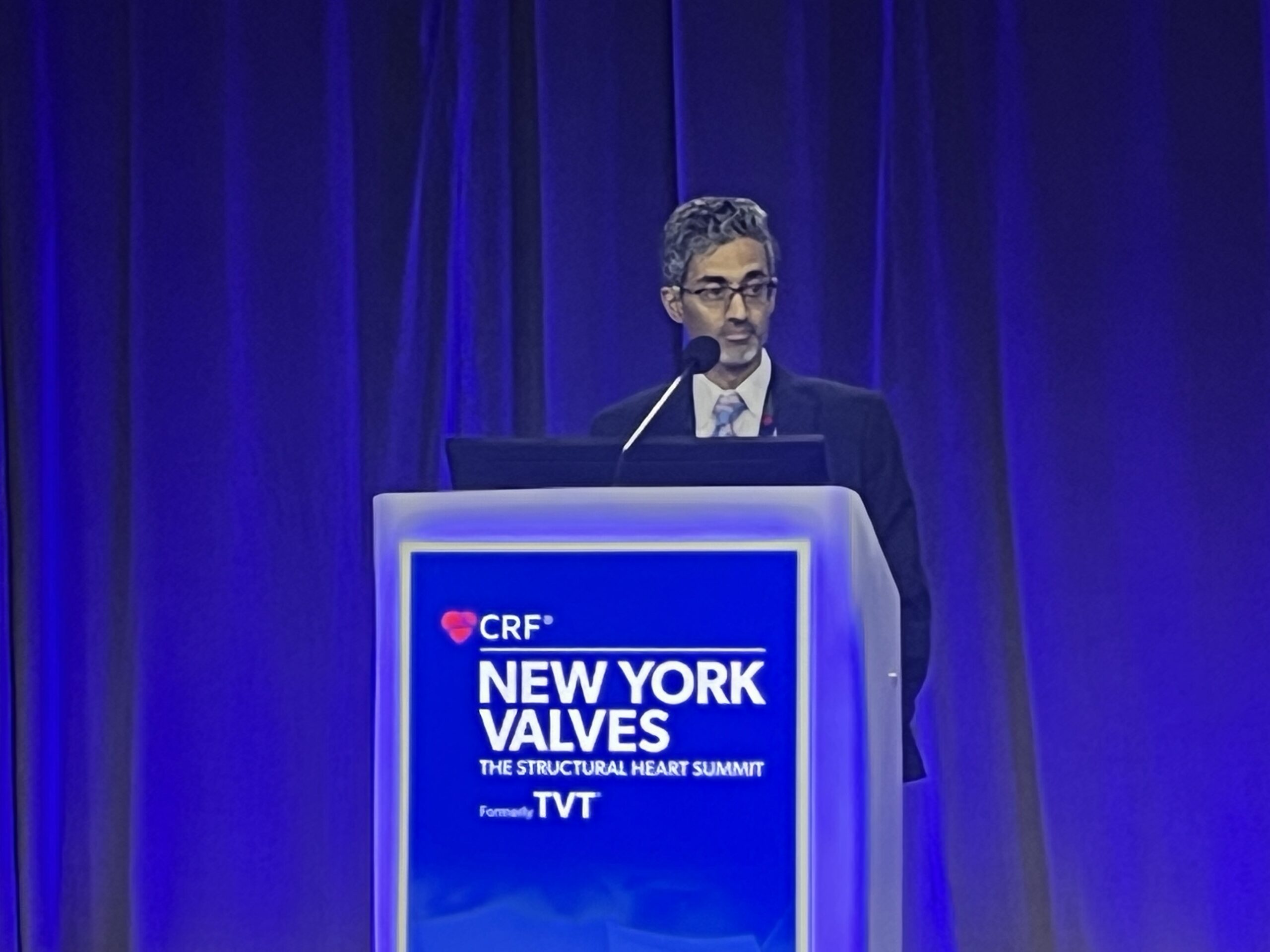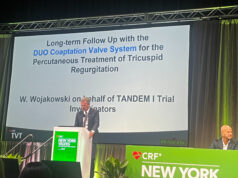
Thirty-day results from the Indian clinical study of the Foldax Tria surgical mitral valve in patients with symptomatic moderate to severe mitral valve stenosis have demonstrated low rates of mortality and thromboembolism. Isaac George (Columbia University, New York, USA) presented findings of the study of the device during a late-breaking trial session at New York Valves 2024 (5–7 June, New York, USA).
The Tria mitral valve has been developed specifically for the mitral anatomy and features a proprietary polymer and design intended to resist calcification without the need for the lifelong use of anticoagulants among recipients.
The Indian TRIA surgical mitral valve study is a prospective multicentre clinical trial, commencing in March 2023, enrolling 67 patients with moderate to severe mitral valve stenosis and/or regurgitation across eight sites in India.
George’s presentation included the clinical and echocardiographic outcomes of the valve at 30 days for symptomatic patients, and outcomes will be assessed at 90 days, six months and annually through five years for safety, haemodynamic performance, and durability.
Primary outcomes assessed in the study include adverse event rates for valve-related early and late complications, haemodynamic performance from baseline as measured by echocardiographic evaluation and change in New York Heart Association (NYHA) class.
Of the 67 patients enrolled in the trial, George detailed that one patient died due to a surgical complication, and one patient missed the 30-day follow-up, leaving 65 patients in the analysis. Patients enrolled in the trial had an average age of 42 years, ranging from 19–67 years, and 64% were female. Major comorbidities included atrial fibrillation (AF), diabetes, and pulmonary hypertension.
Outlining the results, George reported that the rate of all-cause mortality was 1.4%, which was not valve related, whilst adding that there were zero instances of valve reintervention or valve explant. One patient experienced ischaemic stroke and was discharged at 13 days postoperatively and one patient that had a bleeding event. Investigators did not witness any incidence of haemolysis, or valve dysfunction.
“Comparisons to other trials are very favourable,” George said of the results, comparing these against the COMMENCE trial, which assessed the US Food and Drug Administration (FDA)-approved Mitris (Edwards Lifesciences) valve, and saw similar all-cause mortality, thromboembolic events and bleeding events, as well as study of the Dafodil (Meril) valve.
“In patients with symptomatic moderate to severe mitral valve stenosis and/or regurgitation, the Tria surgical mitral valve follow-up demonstrated a low mortality and a low thromboembolic rate,” George concluded. “Valve function was stable by echocardiography and qualitative echo review shows excellent flow dynamics.”
The data will be submitted for approval to the Drugs Controller General of India (DCGI) for approval in India later this year, George noted, and will also serve as the basis for an FDA clinical trial in the USA.













